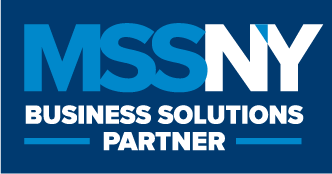Don't Rely on Employer Provided Disability Insurance

By Kate Sellers, JD, CLU®
Vice President, Charles J. Sellers & Co., Inc.
With more physicians now employed by hospitals and large groups, there are more physicians with employer-provided insurance benefits available to them than in the past. Often, these employment benefits include group Long Term Disability (LTD) insurance. While this is a valuable benefit, most physicians should have their own personal disability income insurance as well, and not rely solely on employer-provided coverage. Here’s why:
Control of Your Coverage
When your employer provides your disability insurance, you aren’t in control of your policy. If your employer’s financial situation changes, and costs need to be cut, your employer may decide to lower benefits or cancel coverage altogether. If this happens while you are in good health, you could secure individual disability coverage, but if at that time you have developed a health condition, you might not be able to obtain a meaningful amount of coverage.
To make sure you maintain some control over your disability protection, obtain your own personal disability income insurance policy. When you do, you own the policy and are the only person who can change it. If you have both employer-provided and personal disability policies, and the coverage your employer provides is decreased or eliminated, your own policy will still be there to protect you.
Employer-Provided Coverage May Not Be Enough
Many of our physician customers tell us that they are covered by their employer for disability benefits, but many don’t know exactly how much disability coverage they have. Employer-provided LTD coverage is based on a percentage of monthly income (for example, 60%), with a set cap. We have heard of physician LTD plans with monthly caps ranging from $5,000/month to $20,000/month, so it is critical to know not just the percentage of income covered, but also what the monthly cap is. If you have an annual income of $350,000, and your employer LTD plan covers 60% with a monthly cap of $10,000, $230,000 of your income isn’t insured. By adding your own personal disability insurance policy, you can increase the percentage of your income that would be replaced if you were disabled, so you and your family wouldn’t have to make drastic lifestyle adjustments.
The effect of taxes should also be kept in mind when thinking about whether employer-provided coverage is sufficient. If your employer pays the premiums for your LTD coverage, your benefits will most likely be considered taxable income. If, for example, your employer’s policy provides a maximum benefit of $15,000/month and your employer pays the premium, your benefits after taxes might be $11,250/month (presuming a 25% effective tax rate). Personal disability income policies, on the other hand, are generally set up so that you are paying the premium with post-tax dollars, so that if you become disabled, your benefits are tax-free. Added to your employer-provided coverage, a personal disability policy can help you receive enough income if you are disabled to provide for yourself and those who depend on you.
Have Coverage that Goes With You, Wherever You Go
Another reason to have your own disability insurance, even if your employer provides coverage, is the possibility that you may change jobs in the future. Most people change jobs more now than previous generations did. What if a future employer doesn’t offer coverage, or offers less coverage? Or if you decide to start your own practice? With an employer-provided LTD plan, you may not be able to take coverage with you if you change employment. Some plans have an option that may permit you to take some coverage with you if you leave your employer, but those conversion policies generally have higher premiums and reduced benefits. If you have a health condition at that time, you might not be able to buy a personal policy. Securing your own disability insurance now means you know you will have that coverage down the road, no matter where your career takes you.
Disability insurance is a great benefit to receive from your employer. But there are risks in relying solely on that coverage for your financial protection from disability. Having your own personal disability insurance as well will help ensure that you have enough coverage if you need it.
Charles J. Sellers & Co. is the endorsed administrator of insurance programs for Onondaga County Medical Society members.

